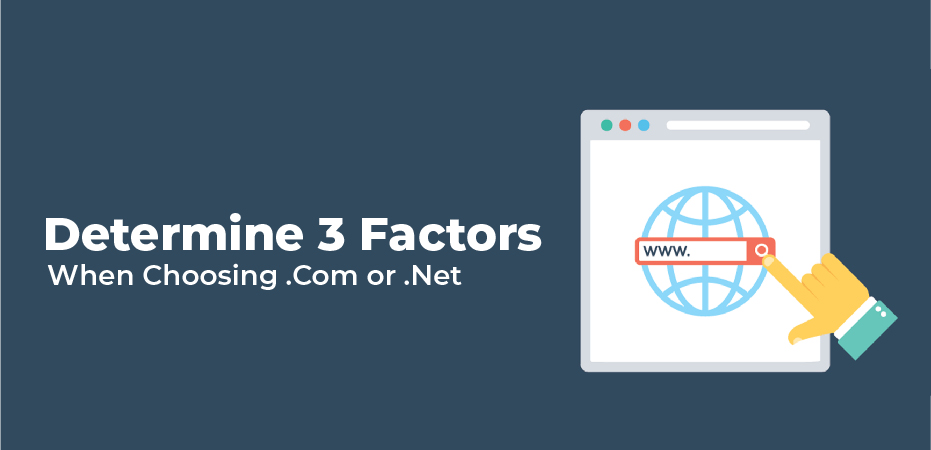Would you like to know the difference between a .com and .net domain name extension? Your domain name has a huge impact on your branding and search engine rankings, so choosing the right one is crucial.
We will discuss the differences between .com and .net domain extensions and which one is best for your website.
Introduction of Domains Extension
Each domain name consists of two components: the name and the extension. All three of these elements together make up the “address” of your website on the web.
A domain name is the identifier unique to the website and is also called a top-level domain. After the second-level domain is the domain extension comes. The top-level domain (TLD) is also known as a domain extension. There is no difference between the two.
Second-level domains signal your brand’s name, whereas domain extensions identify what your website represents. For example, since HubSpot is a business, the top-level domain is “.com”.

com vs org vs net
Determine 3 Factors When Choosing .Com or .Net
Your domain extension sets the proper expectations for your site users, whether you are a for-profit company, blogger, or conspiracy theory debunker.
Think about buying shoes online and discovering the domain extension is a .org. The .org extension is not something you normally see used for eCommerce, so it might seem logical to assume that purchasing these shoes helps a nonprofit in some way (as most nonprofits and charities use the .org extension).
While it may seem like a good idea at first – yet another reason to get those shoes! Using a domain extension in such a dishonest way is considered dishonest by some. Although there aren’t a lot of requirements regarding which TLD (or top-level domain) companies can use, there are certain expectations and connotations associated with each.
The Purpose of Website – What Is Net Vs Com
Do you have a product to sell? What information do you have to offer? Would you like to save an animal species?
These questions are crucial in determining whether a given domain extension is appropriate for your business. Let’s take a look at the most popular domain extensions:
- .com – Usually provides a service or product. A .com domain is a standard for commercial businesses, nonprofit organizations, personal blogs, and blogs that are not personal. As a result of its generality, almost any website can qualify as a .com.
- .net – Stands for “Network” and is generally associated with “umbrella” sites, which house small websites. Initially, networks were created to house services like internet providers, emailing companies, and infrastructure for the internet.
Consider a .net; when the .com domain name for your desired website is already taken, consider a .net. Other common domain extensions serve specific purposes:
- .org –These sites are generally associated with nonprofit organizations such as charities and nonprofit organizations that want to drive traffic for informational purposes and not for commercial gain. Sports teams, religious groups, and community organizations are also using .org.
- .edu – “Education.” Schools, universities, and other educational websites will use the .edu domain extension to present themselves as authoritative.
- .gov – or “Government.” The United States authorities must run these sites. Therefore, everything related to the U.S. government or other government departments must have a .gov extension.
What’s More Memorable -. Com Or .Net
Have you ever noticed that an advertisement plays, and you barely catch the tail end of it? What if you type in the website address, and nothing happens? Then you find out it was a .net or another domain when it was a .com.
As a matter of fact, the basic assumption about websites is that they all have a .com domain extension because the second most common top-level domain (.org) is only used about 5% of the time. Therefore, if you choose the tried-and-true .com, companies can bypass this confusion and won’t have to worry about decreasing traffic.
Consider this absurdity: Most cell phone keyboards come with a “.com” button, but none comes with a .net, .org, or any other domain extension.